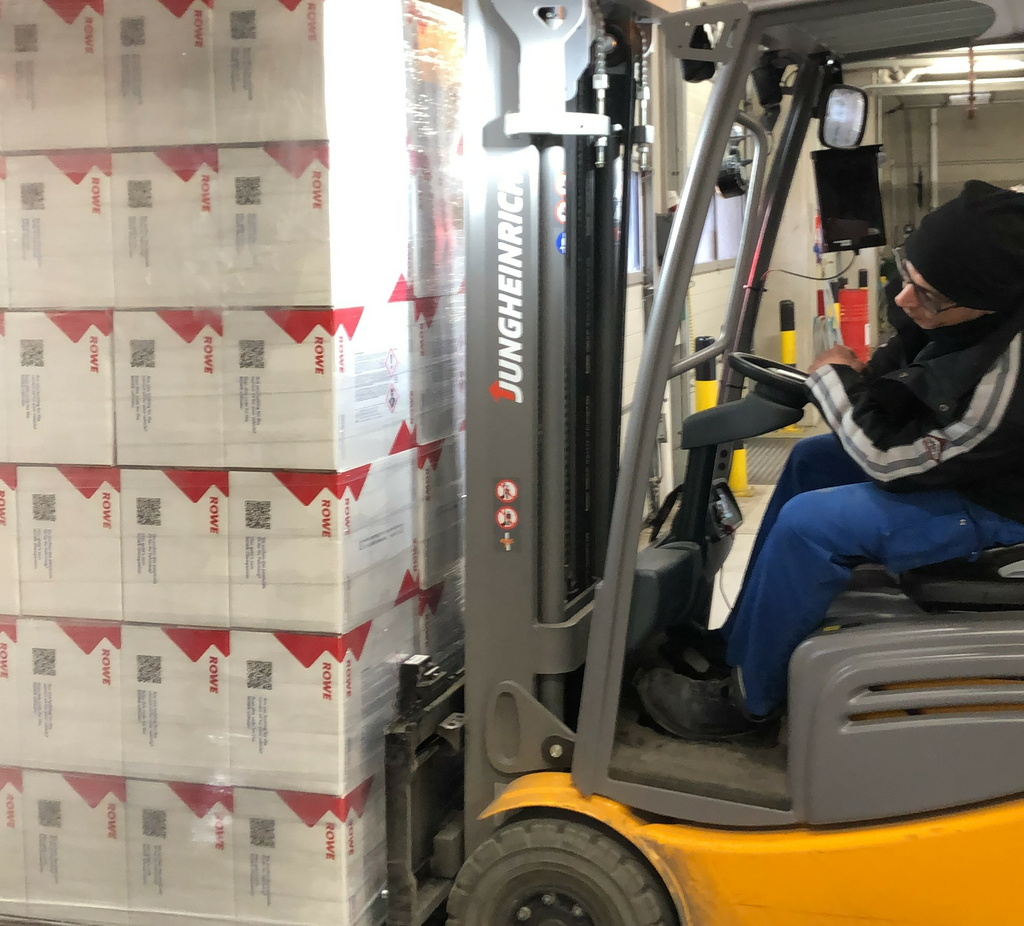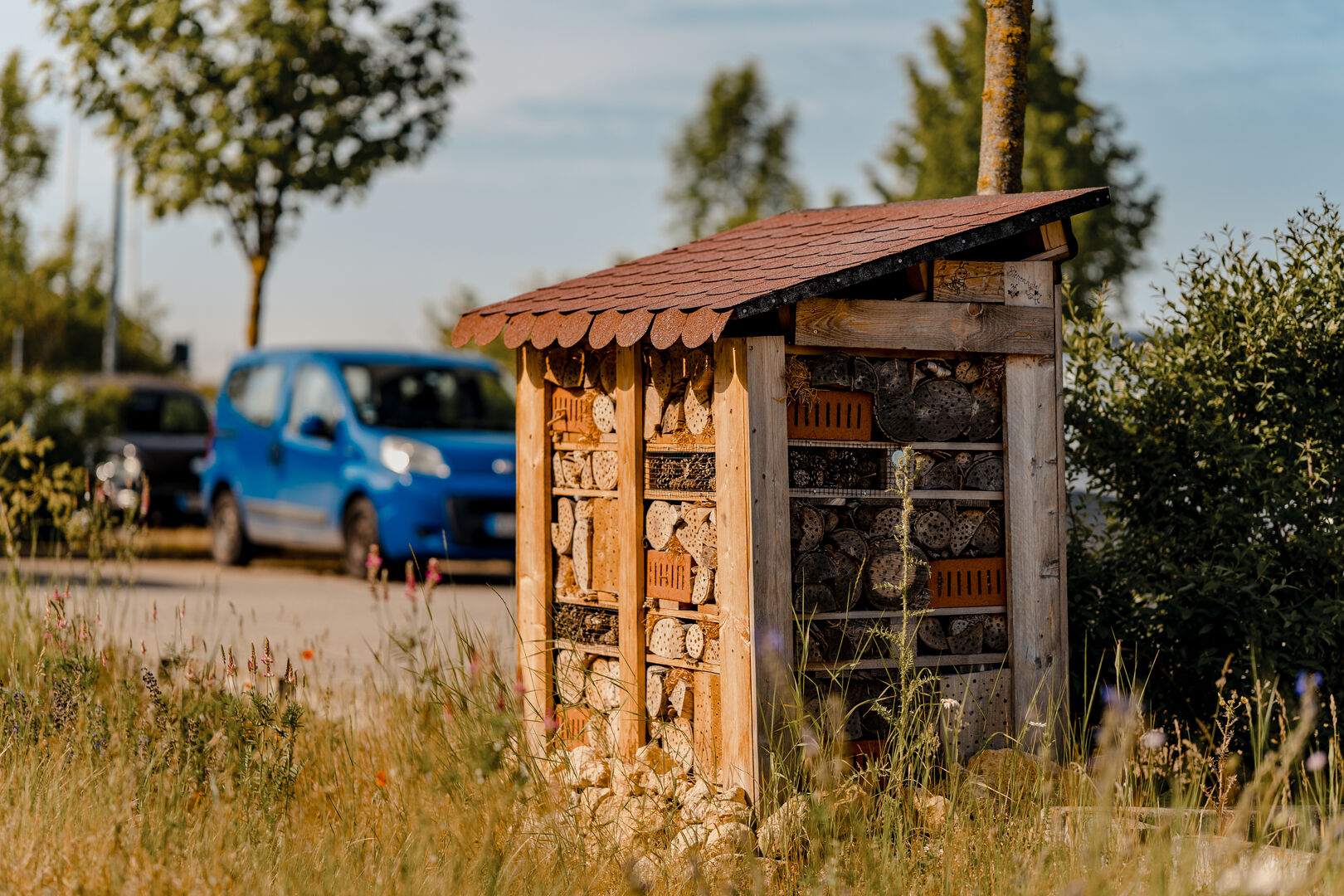SUSTAINABILITY at Rowe
Commitment based on entrepreneurial conviction
WHY THIS IS SO IMPORTANT
Sustainability at Rowe – founded from entrepreneurial conviction and with a clear focus on the interface between ecology and economy

ALWAYS USING ENERGY EFFICIENTLY
Reducing CO2 emissions

-
Modern energy management systems and process control system will assist with saving energy in many places.
-
4,000 m2 solar plant in Worms (capacity: 749 kWp).
-
Solar plant in Bubenheim (capacity: 488 kWp).
-
CHP plant at the Worms factory (capacity: 600 kW thermal/ 600 kW electrical).

- The boilers installed at the Worms factory are located indoors: waste heat is utilised to heat the halls and also for the production processes themselves.
- Waste heat generated from the grease manufacturing plant is also utilised.
- This process is so efficient that we can completely dispense with heating systems in our halls.

- ROWE is structured as a vertically integrated company. Examples for this are the in-house production of containers (Palbo GmbH)or the construction, servicing and maintenance of filling plants by the ROWE subsidiary of ITEC.
- Creating added value directly on site in the ROWE factories in Worms and Bubenheim enables many, otherwise necessary, transport routes and the thereby associated CO2 emissions to be reduced.

-
Compensation for unavoidable CO2 emissions by certified sustainability partners (internationally recognised Gold Standard).
DESIGNING THE COMPANY PREMISES AS SUSTAINABLE
Target: increasing biodiversity
Awarded the "Worms Environmental Star"
ROWE has visibly increased the biodiversity of plants and insects on the company premises during the course of the project for "Dare more for nature". The measures which have been implemented to date include a deadwood hedge, insect hotels and nesting aids, natural meadows and other sustainable planting projects as well as a large pond. In 2021, we were awarded the Worms Environmental Star for this nature-oriented design. In the future, we will also continue to explore additional opportunities to make our premises even more sustainable.
SAVING RESOURCES
Preventing waste

- So-called "dedicated lines" at the Worms factory: every line, pipe or service is only used for one product, so there can be no contamination from other products.
- This therefore largely prevents the need to rinse the pipes or services, which would otherwise be necessary.
- State-of-the-art production processes save raw materials.
- Recycling numerous raw materials and other materials (e.g. cardboard for packaging, wood for pallets).

- Consistent rubbish separation.
- Reduction of commercial waste by the amount of label carrier material (approx. 20 %).
- Implementing digital processes instead of still using paper: In administration, ROWE is already on the way to a paperless office.
- Production of sustainable containers by Palbo in Worms and Bubenheim: currently around 50 % of recycled content in every ROWE small container which is produced; ongoing development to further increase this proportion.

- Constant review and optimisation of the supply chains from a sustainability perspective.
- Supplier assessment system with integrated sustainability aspects.
- A code of conduct for business partners.
- Procurement of "Green IT" and other "green" products whenever this is possible.

- Concentrating on expanding our range of lubricants which are based on renewable raw materials in various product categories.
- Application example: Our native hydraulic oil has proven itself in tough and harsh condition applications on construction sites worldwide.
- Also available in the ROWE product range: coolants for heat pumps and solar systems.
of the energy requirements at the Worms factory are covered by ourselves
of our products are fully CO2 compensated
is the minimum recycled content in all our containers, and this percentage is rising continuously
CERTIFICATE




Responsibility implemented in association work
In addition to complying with legal regulations and internal guidelines, ROWE has been assuming responsibility in the work of associations for a long time to date and is a member of various initiatives:
UNITI Bundesverband EnergieMittelstand e.V.
The UNITI Bundesverband EnergieMittelstand bundles the competences in fuels, in the heating market and also for lubricants. The association represents about 90 percent of the organised mineral oil medium-sized companies in Germany. The more than 1,000 member companies of UNITI achieve a total annual turnover of around 35 billion Euros and currently employ around 80,000 people in Germany.
FSQ - Fachgemeinschaft Schmierstoffqualität e.V. (Association for the Quality of Lubricants).
The Fachgemeinschaft Schmierstoffqualität e.V. association actively pursues the purpose of ensuring the quality of lubricants which are traded in Germany, in particular the compliance with the respective API, ACEA, ISO, DIN, ASTM, RAL and SAE classifications as well as the manufacturer's specifications, thereby promoting the equality of competition among the market participants and protecting the consumer. The association members always undertake to comply with the quality standards and subject themselves to regular self-monitoring. The members' products are inspected at least once a year.
NaSch Sustainability Initiative for the Lubricant Industry IN VSI
Since 2017, ROWE has been a member of NaSch, the sustainability initiative of the German lubricant industry. As far as ROWE was concerned, this was another logical step for the company to join the sustainability initiative which was established in 2016. Joining NaSch means that ROWE was one of the first medium-sized lubricant manufacturers to consciously decide to support the initiative and to thereby act proactively within this circle. The idea behind this is that the lubricant companies should always set standards themselves, which the industry can orient itself to. Accordingly, NaSch is therefore engaged in the development and definition of Sustainability Key Performance Indicators (SKPIs) for the lubricants industry. The decisive SKPIs are the development of energy consumption, CO₂ emissions, waste generation and the development of water consumption.
Association of German Women Entrepreneurs (VdU)
ROWE managing director Dr. Alexandra Kohlman has also been active in the Association of German Women Entrepreneurs (Verband deutscher Unternehmerinnen (VdU)) for many years. As part of the economic commission, she has a responsible role within the association’s structure.
Since 1954, the VdU, as an industry association, has been representing the interests of female entrepreneurs across all industries. For over 65 years, the VdU has been advocating for more female entrepreneurship, more women in management positions and better conditions for women in the economy. The aims of the VdU include promoting sustainable economic activity through lived responsibility for the environment and our fellow human beings, in particular for the workers. In close coordination with the association's federal executive board, the VdU’s economic commission comments on current or fundamental economic issues that affect female entrepreneurs as well as small and medium-sized businesses.
OUR SUSTAINABILITY PARTNERS



 العربية
العربية български
български Deutsch
Deutsch Ελληνικά
Ελληνικά English
English español
español français
français italiano
italiano Nederlands
Nederlands polski
polski português
português română
română Türkçe
Türkçe










